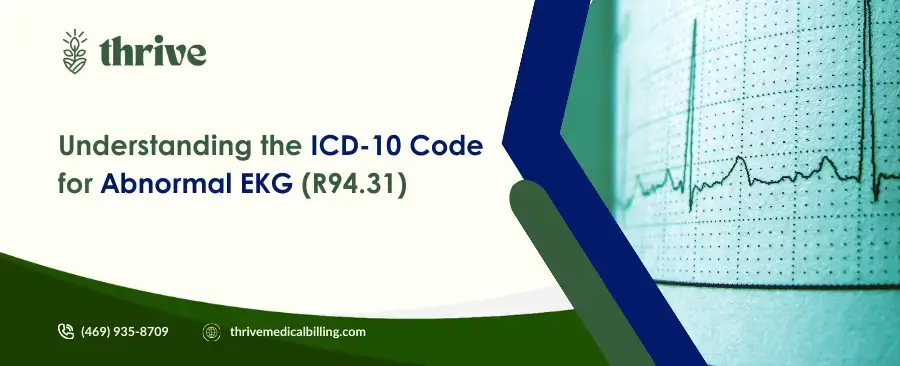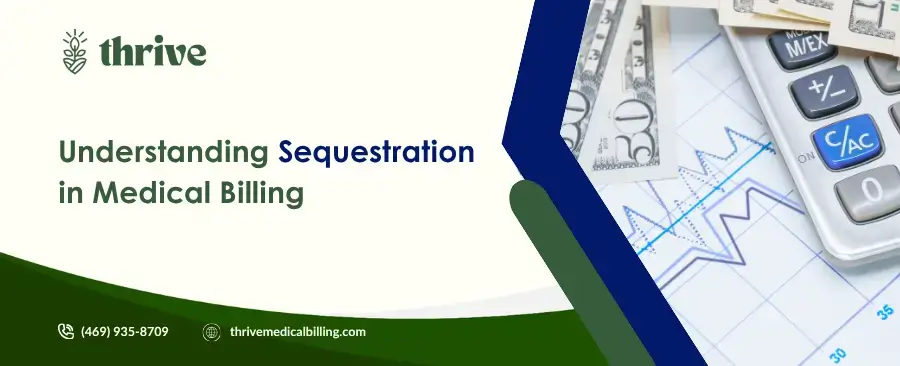Electrocardiograms (EKGs or ECGs) are a critical diagnostic tool in healthcare, offering a window into the heart's electrical activity. They play a vital role in detecting and managing heart conditions early. If you've encountered the term "ICD-10 code for abnormal EKG," you're likely looking to understand what it signifies, when it's used, and why it's significant. This blog will guide you through the details of the ICD-10 code R94.31, the implications of abnormal EKG results, and the importance of heart health monitoring.
What is an EKG and Why is It Important?
An electrocardiogram (EKG or ECG) records the electrical signals in your heart. It’s a painless and quick test that helps doctors evaluate how well your heart is functioning. With electrodes placed on the chest, arms, and legs, the EKG measures the timing and strength of the heart's electrical impulses.
Physicians rely on EKGs to detect issues like arrhythmias, heart attacks, and other abnormalities affecting the heart's rhythm or structure. Because of its ability to provide real-time information, the EKG is often one of the first tests performed when symptoms such as chest pain, dizziness, or shortness of breath arise.
The ICD-10 Code for Abnormal EKG (R94.31)
The International Classification of Diseases, 10th Revision (ICD-10), is a system used by healthcare providers and insurers to code and classify diagnoses and medical procedures. It ensures standardized reporting for effective communication and medical billing practices.
The specific code for an abnormal electrocardiogram ecg ekg is R94.31. Here’s what this code represents:
- Code Meaning: R94.31 is used to report an abnormal result in an electrocardiogram. It indicates that the EKG findings are outside the normal range, although it doesn't specify the exact nature of the abnormality.
- When It’s Used: This code is typically applied in documentation when an EKG reveals irregularities such as arrhythmias, prolonged QT intervals, or other deviations from normal heart function. It's commonly used during initial assessments and follow-ups.
- Significance: R94.31 does not necessarily confirm a specific heart condition but rather flags that further evaluation is necessary to determine the underlying cause of the abnormal result. It ensures accurate communication among clinicians and insurers about observed abnormalities.
Why Is Code R94.31 Important?
Accurate coding, including the use of R94.31, streamlines diagnoses and treatments. It allows healthcare providers to:
- Communicate patient findings clearly.
- Justify additional diagnostic tests (e.g., stress tests, echocardiograms).
- Ensure proper insurance reimbursements.
Common Causes of Abnormal EKG Results
Abnormalities in EKG readings can result from several underlying conditions. Some of the most common causes include:
1. Arrhythmias
Arrhythmias are irregular heartbeat patterns, such as tachycardia (fast heartbeat) or bradycardia (slow heartbeat). These irregularities are often easily detectable on an EKG and may require medications, lifestyle changes, or devices like pacemakers for management.
2. Myocardial Infarction (Heart Attack)
A heart attack occurs when blood flow to the heart is blocked. EKGs help identify heart attacks by detecting abnormal electrical patterns indicating damage to the heart’s tissue.
3. Electrolyte Imbalances
Abnormal levels of electrolytes like potassium, calcium, or magnesium in the blood can disrupt your heart's electrical signals, leading to irregular EKG results.
4. Conduction Disorders
Conditions such as bundle branch block or Wolff-Parkinson-White syndrome interfere with the electrical pathways in the heart, potentially causing abnormal EKG findings.
5. Structural Heart Problems
Issues like hypertrophy (enlarged heart muscle) or valve disorders may also lead to atypical EKG results.
6. Drug Effects
Certain medications, including those that affect blood pressure or heart function, can influence EKG readings. For example, digoxin is known to produce specific patterns indicative of its presence in the bloodstream.
How Healthcare Providers Interpret Abnormal EKG Results
An abnormal EKG is only the starting point, not the final answer. Here's how clinicians interpret findings and determine the next steps:
Step 1: Compare with Baseline Results
If previous EKGs are available, doctors will compare the current readings to identify new changes.
Step 2: Evaluate Symptoms
Physicians consider symptoms like chest pain or palpitations alongside abnormal EKG findings to assess urgency.
Step 3: Correlate with Other Tests
Additional diagnostic tools, such as blood panels, echocardiograms, or stress tests, are often used to confirm or rule out specific conditions.
Step 4: Develop a Management Plan
Treatment plans may include medication, dietary adjustments, physical activity recommendations, or procedures such as cardiac catheterizations, depending on the root cause of the abnormality.
The Importance of Early Detection and Regular Check-Ups
Heart conditions often develop silently, showing little warning before significant events like heart attacks or strokes occur. Routine check-ups that include EKGs can detect abnormalities early, allowing timely interventions that save lives.
Key Takeaways:
- Regular Screenings: If you have risk factors such as high blood pressure, diabetes, or a family history of heart disease, regular EKGs are crucial.
- Lifestyle Modifications: Maintaining a healthy weight, exercising regularly, eating heart-healthy foods, and avoiding smoking can lower your risk of abnormal EKG findings.
- Follow-Up Care: If your doctor identifies an abnormality, it’s essential to follow their advice on additional tests or treatments.
Final Thoughts
The ICD-10 diagnosis code for abnormal EKG, R94.31, highlights the importance of early detection in heart health. While an abnormal EKG does not always indicate a critical problem, it does signal the need for a closer look. By understanding common causes and the interpretation process, you can feel empowered to take proactive steps for your heart health.
Remember, regular check-ups and a heart-healthy lifestyle aren't just recommendations—they're the foundation of long-term wellness. Don't wait until symptoms arise—schedule your next appointment today and take control of your well-being.







